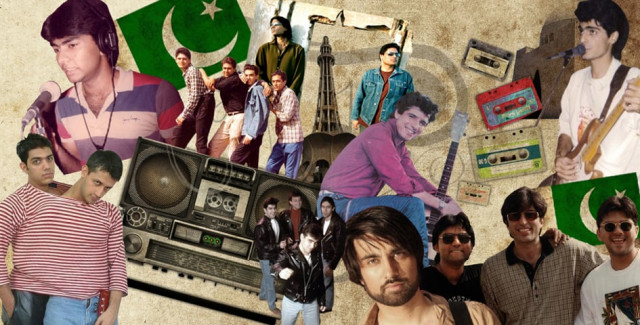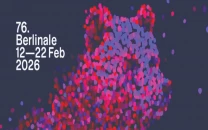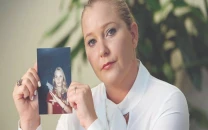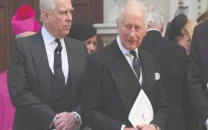Lost tales of Pakistan's 10 game-changing songs - Part 1
Lost tales of Pakistan's 10 game-changing songs

Lost tales of Pakistan's 10 game-changing songs - Part 1

From the siblings’ disco tunes and moves to Junaid Jamshed’s mesmerizing vocals in the patriotic Dil Dil Pakistan and Yahi Zameen and in the existential Musafir and Tum Dur Thae to Junoon’s introduction of ‘fusion’ music in the form of Nee Heeray, Sayoonee and Jazba-Junoon.
They were pretty much the ‘Big 3’ of the Pakistani pop music industry and the foundation of band culture in Pakistan. Every song they made has not only inspired many musicians to pick up an instrument, but an entire generation of Pakistanis. A music aficionado or not, everyone knows and still remembers their songs.
However, our rich pop music history goes beyond these legendary acts and here we attempt to explore that.

Initially traveling between East and West Pakistan, Alamgir moved to Pakistan in the early 70s. Those who belonged to that generation recall him as a ‘youngster’ clad in jeans and a Tee-shirt, who would often treat people to his songs, sitting on a bench in Hill Park. After struggling for some time, Alamgir finally received a break through Albela Rahi and also went on to record the very popular Bengali folk song Aamay Bhashaili Re. Even though he was a known face by then, he really began making waves among the western music listening youth with his song Keh Dena. It was not only an original composition by Alamgir but the singer also played the guitar on its initial version, though the version that is more readily available online features the neat guitar playing of Aamir Zaki. The brilliant pop-rock number was a ray of hope in a predominantly film, milli naghmay and ghazal dominated music industry. Since its release, the song has been covered by multiple artists a number of times but the version that received immense popularity was his collaboration with Chinese singer Christie Yung.
“Kristie Yung surprised me,” says Alamgir. “I have sung in so many languages myself and I remember when I used to sing in other languages, I used to take the recording to the embassy of that country and ask for their feedback,” the singing legend spoke about his collaboration.

The line “Allah Allah kar bhaiya, Allah hee sae dar bhaiya” resonates in every Pakistanis mind and by the very power of spoken language, has been conveyed to generations. Released under the state-controlled PTV and at a time when the Soviet invasion of Afghanistan was coming to an end, the song in many ways introduced the concept of fusing eastern and western music. Although folk artists were traditionally given decent air time on radio Pakistan and PTV, with this song, we saw one collaborating with and not imitating a mainstream pop singer. Needless to say, Teray Ishq Mae by Mohammad Ali Shyhaki and Allan Faqir was the first successful experiment in fusion music but before we celebrate its glory, here’s an interesting fact: Faqir was never meant to be a part of the song.
Shyhaki recalls how he and Saira Kazmi (producer of the video) were looking for a girl who could sing the part and record a duet with Shyhaki. “The ones who looked good on camera were ordinary singers and the good singers were not as presentable, and while we were skimming through the names, Faqir passed by our room in the PTV Karachi office and we called him in,” recalls Shyhaki. “As soon as Faqir walked into the room, we (Saira and I) looked at each other in astonishment and that’s when Saira Kazmi said ‘Why not give it a try’ and the rest, as they say, is history."
Well-known lyricist Shabi Farooqi came on board to write the Urdu translation of the song and Javed Allahditta of PTV produced the song. “Since the metaphors were derived from Thar Desert, it became very difficult to translate it as it is, so Farooqi sb kept its soul intact and treated it like a Hamd.”
“The catch for me in the song was ‘Humma Humma’ which faqir told me was the voice shepherds used to take out while pulling their animals out of a puddle. 'Siyani, Piyari' were all the names of the animals in the shepherd’s herd”.
Four days after the release of the song, the PTV office was flooded with telegrams filled with admiration for the song. “That is when we realised we had made something really impactful; we had made something that lead to the genesis of Coke Studio”.

The song that brought Pakistan’s prime boy-band from the early 90s to the forefront of music, even today, was meant to be a ‘filler’ to make a 55-minute album a complete 60-minute album. Formed in 1988 by four college students , Kareem Bashir, Faisal Kapadia , Bilal Maqsood and Rafiq Wazir, Strings released its first album Strings in 1990 but failed to gather a following . However, it was in their second album titled ‘2’ that the band released the timeless Sar Ki Yeh Pahar: a song that featured a light mix of synths and rhythm on top of a uniquely flat vocal texture.
The song not only made the band start taking their music seriously but also became an anthem of its time, encouraging many present-day musicians to pick up the guitar and play live music.
“After doing a few concerts, we were planning to go on a break but just before that on one December evening in 1992, we decided to make a video for Sar Ki Yeh Pahar,” recalls Faisal Kapadia.
“Everything changed for the band in just about three days; our video was playing on MTV Asia. Back then, there was no concept of CDs, 60-minute-tapes were the only release mediums and our album itself was 53 or 55 minutes long. So this specific song was just a filler but as history sees it, it became a signature song for us.”

In 1993, Sajjad and Waqar Ali had no idea how things would unfold when they were recording the song Babiya. It was their take on Cheb Khaled's Didi, which they made not because it was a great song to replicate and launch an album with, but because their mother wanted to listen to the same song in Punjabi. This fact was confirmed by Sajjad himself.
Babiya, the title song of Sajjad Ali’s album Babyia 93 was never meant to be a part of the album. It was just an additional song that was recorded by Sajjad for the sake of experimentation. However, the song was accidently played for the first time at Beena Benjamin’s (from the musical group Benjamin Sisters) wedding. The person who was playing music at the ceremony cued it, without Sajjad Ali’s permission.
This took Sajjad by surprise, but the crowd thoroughly enjoyed it. This was the moment Beena showed keen interest in the song.
“She walked up to us and asked if we are releasing the song in Sajjad Bhai’s new album and since we were still in a state of shock, in a daze, we said yes,” recalls Waqar.
Beena went on to ask Mushtaque, a common acquaintance, to release the album. Even Mushtaque had no idea what was going on and had no previous experience in releasing music.
“Mushtaque said yes because he couldn’t say no to Beena Benjamin. None of us knew what was happening,” recalls Waqar.
This brief yet confusing meeting between Sajjad Ali, Mushtaque and Beena also lead to the formation of Sound Master Pakistan, the record label that has produced some memorable Pakistani albums.

A better coming-of-age Pakistani song has never been made. Purani Jeans by Ali Haider, the song that sweetly summarises the problems of a middle-class college boy, made owning a guitar and wearing ‘purani jeans’ cool. The song was not only a hit in its truest sense but in many ways paved way for soft melodies that revolved around everyday life situations. It is because of this song Haider is often considered to be a one-hit-wonder.
However, the story behind Purani Jeans is quite amusing. The song was actually made as a farewell anthem for Haider’s graduating batch at NED University of Engineering.
“The idea for Purani Jeans was conceived during my last days at NED. Like all batches, we wanted to put together a farewell song. So I took up the task,” Haider told The Express Tribune.
The first version of the song was composed by Imran Ali and was recorded in EMI Studios. Producers at EMI were taken aback by the song as they were not used to hearing this type of music. “They wanted a love song” says Haider.
So, they ended up naming his first album Sandesa (as it felt more romantic) despite Haider’s attempts at convincing them to name it Purani Jeans Aur Guitar.
The song proved to be tremendous hit, leaving even the record label surprised by response they received. Slowly and gradually, the song became a hit across the Subcontinent.
To date, five versions of the song have been produced. The first one was by Imran Ali; the second by Faizi for the music video directed by Kunal Kohli. The third was by Faraz Anwar when Haider was touring Los Angeles and then there was one version for the Indian film Purani Jeans.
“I think I brought about the jeans culture through this song,” says Haider. “Many guitarists to this day tell me Purani Jeans was one of the first songs they learnt to play on the guitar mainly because it was in demand and also because it had the word ‘guitar’ in it.”
Additional input by Hasan Ansari and Saadia Qamar.



















COMMENTS
Comments are moderated and generally will be posted if they are on-topic and not abusive.
For more information, please see our Comments FAQ